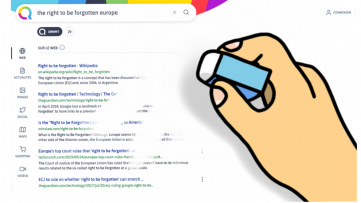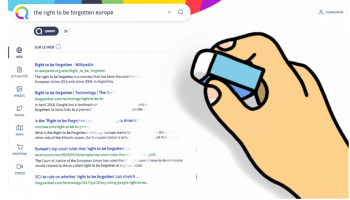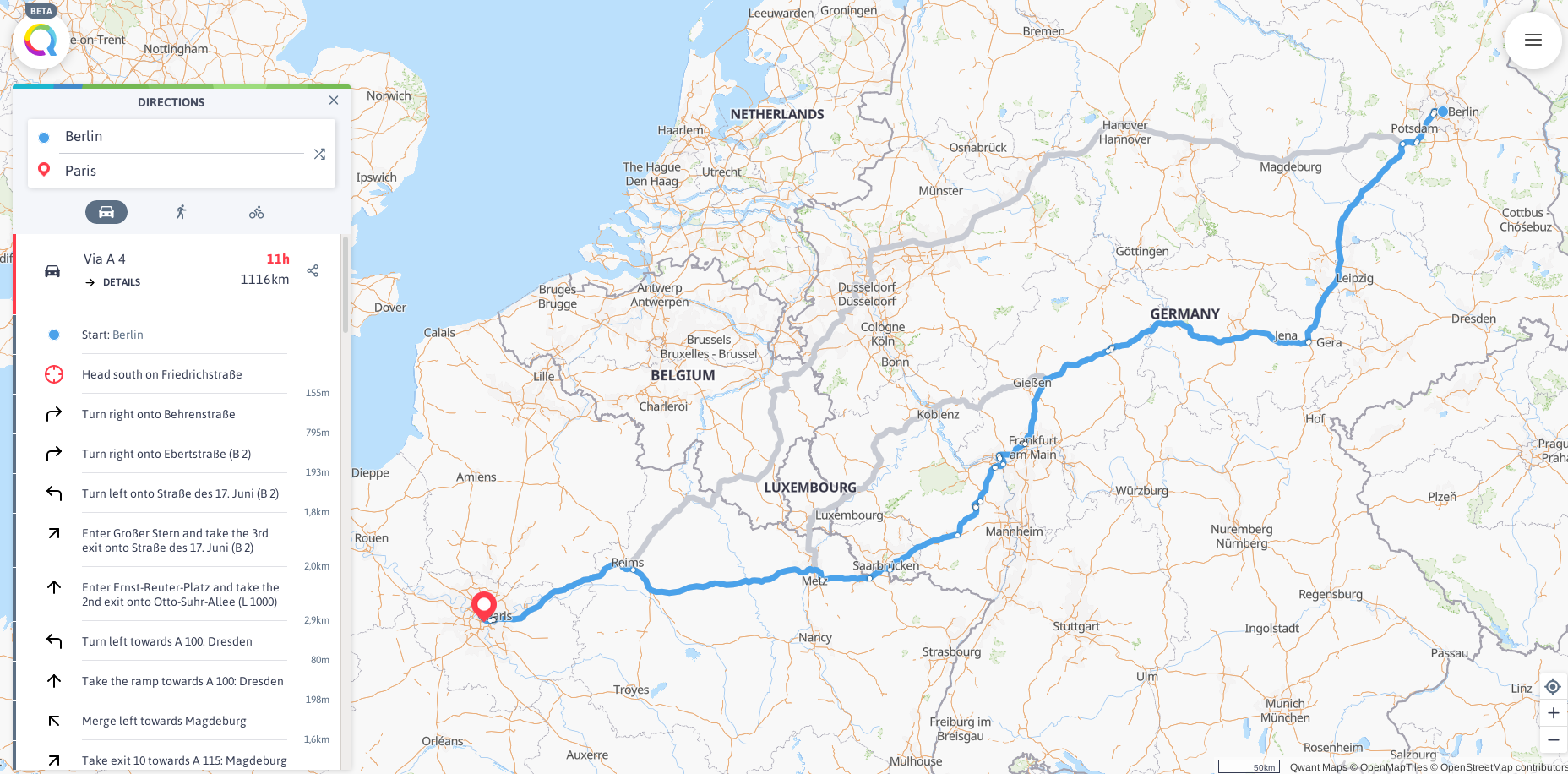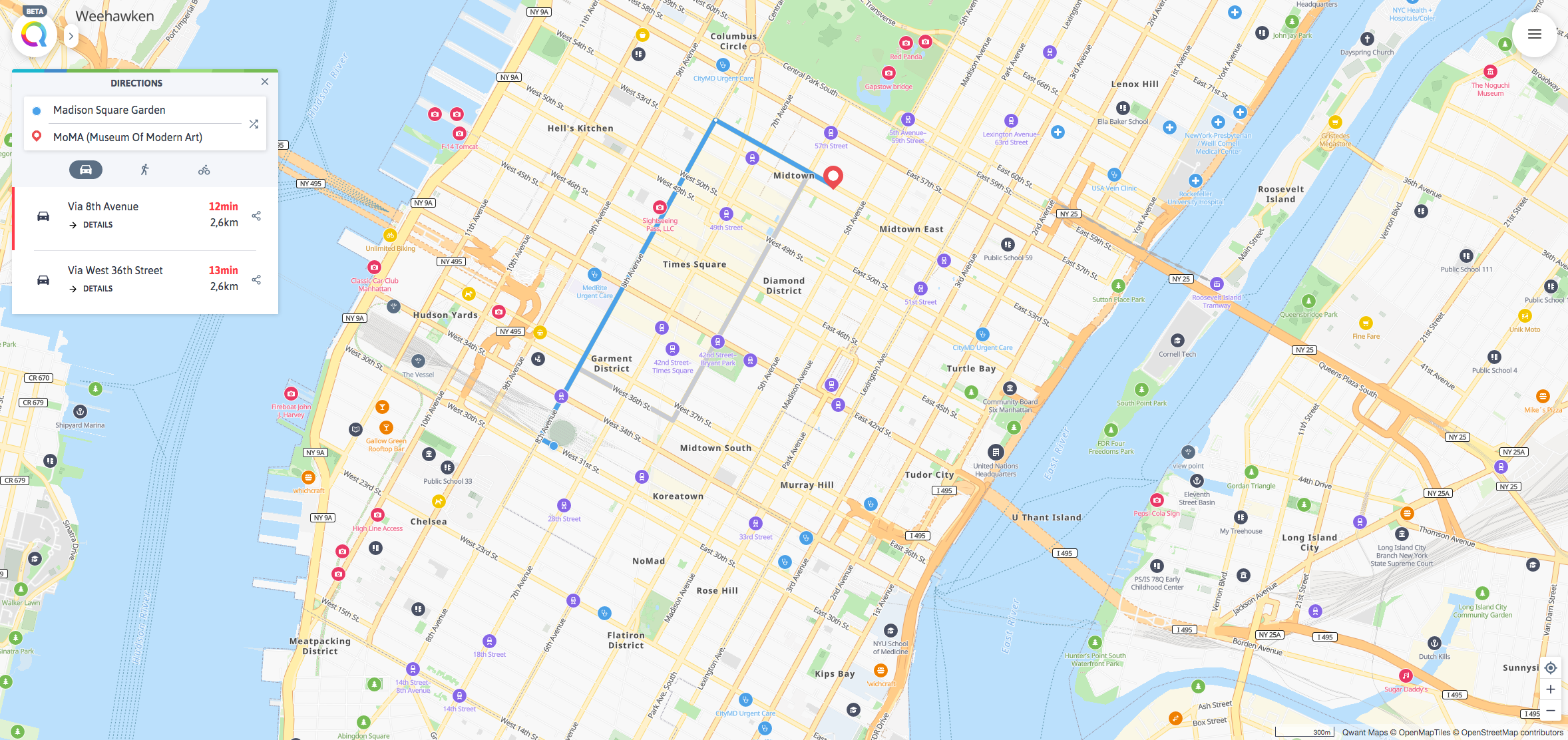


We explain you why Qwant Maps use opensource
Web mapping applications are nowadays an ubiquitous and essential component of our lives. They bring to the user a set of helpful services that we are now all used to. Unfortunately the quality of these services depends indirectly on the user personal data that are often vampirized and exploited, without any respect for user privacy. Qwant Maps is born from this fact and proposes to give users exclusive control over their geolocated data.
To this end the choice to use OpenStreetMap as our main data source became obvious. Close to the DNA of Qwant Maps, OpenStreetMap is before all an important free and collaborative geographical database supported today by more than a million contributors around the world. Any voluntary user can freely contribute to enrich the database with new places.

Historically, a basic software ecosystem has gradually been implemented around OpenStreetMap in order to provide the mapping services required for the simplest uses of the map. However this ecosystem has never been planned to reach the general public. As a result the user who is not familiar with the project may find it difficult to use the OpenStreetMap tools. Specifically the absence of any efficient geoparsing system and autocompletion engine made the navigation and the exploration on the map nearly impossible.
To overcome these shortcomings and to meet the needs of most of people, Qwant Maps has developed — or participated to the development — its own software components. The will of Qwant Maps is to create a virtuous synergy between Qwant Maps and OpenStreetMap. Thus Qwant Maps uses OpenStreetMap data to generate its own vector tiles, its own base map, its own web APIs. Also Qwant Maps feeds its geoparsing web service as well as its online applications thanks to OpenStreetMap data.
All components developed by Qwant Maps are open source so that users can contribute directly to improve their experience with the map: they can contribute either to the Qwant Maps code or to the enrichment of the data directly in OpenStreetMap.

The technical stack built by Qwant Maps is composed, among others, of the following open source software packages: